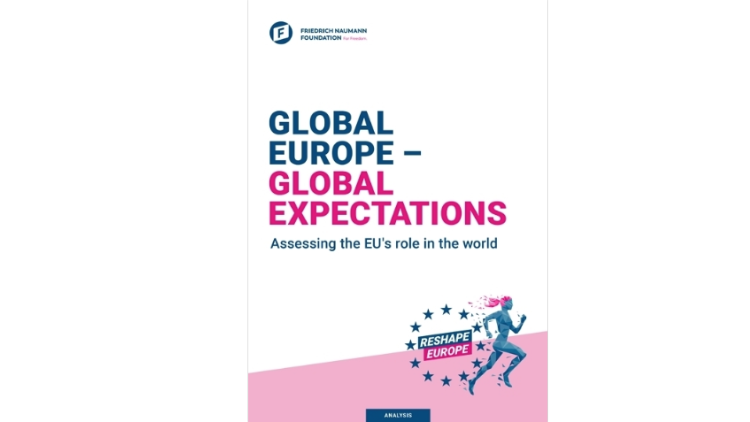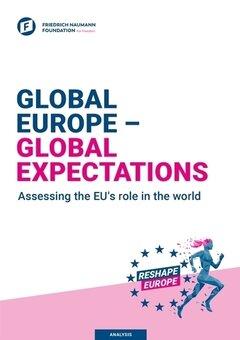Reshaping Europe
Global Europe – Global Expectations

What Is This Publication About?
The Russian war of aggression against Ukraine poses an unprecedented threat to Europe and the international rules-based order. The liberal model of democracy – based on a set of values of open societies, democracy, the rule of law, human rights and a market economy – is being openly challenged by actors who wish to destroy our way of life.
In order to prevail against authoritarian regimes, the EU's liberal model of democratic societies must regain its appeal in the world. To this end, the EU needs to convincingly demonstrate that free and democratic societies are best equipped to master major challenges
This publication is an attempt to find answers to the following questions:
- What are the expectations placed on the EU by other continents?
- How can the EU deliver on them?
- What are the opportunities and the challenges for a fruitful cooperation between the EU and each world region, and how can these collaborations be strengthened?
Therefore, this series of policy papers examines the expectations each world region has of the EU and makes proposals about how cooperation between the EU and other parts of the world can be strengthened. The findings of this paper serve as a starting point for the discussion about how the EU can regain its appeal as a model of liberal democratic societies outside its own borders.
In conclusion, the policy papers in this volume provide insights into the EU’s relations with other regions of the world and contribute to the formulation of their expectations of an EU that aspires to be a global and autonomous actor in world affairs. The papers address the question of how the EU and the respective regions can deepen their cooperation in order to meet the global challenges of our time together.
